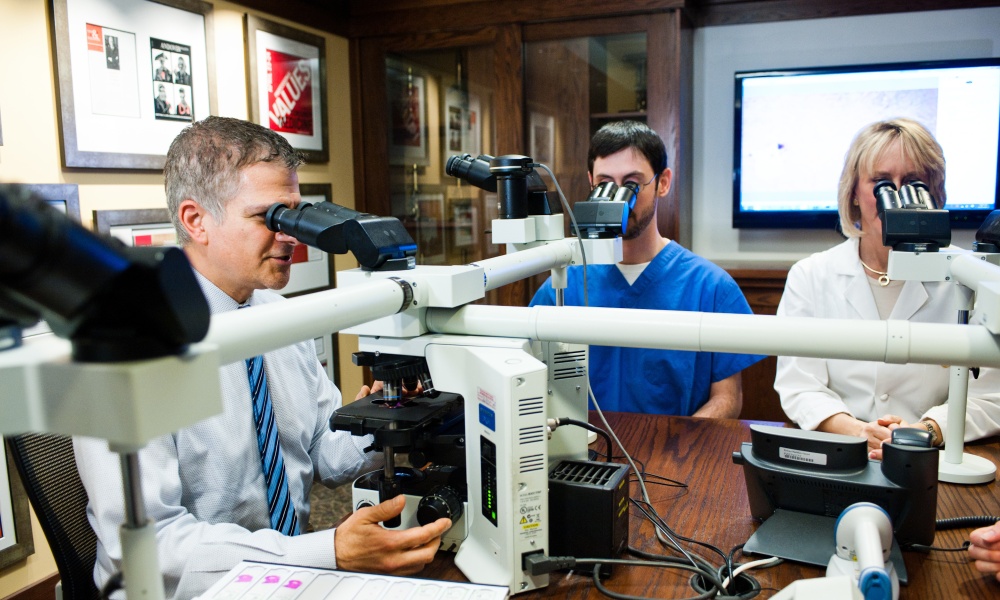Surgical Pathology Fellowships
Mass General Brigham Pathology will offer Surgical Pathology Fellowships in multiple
subspecialty areas and general surgical pathology, beginning academic year 2027-28.

Contact Information
Starting July 2027, Mass General Brigham Pathology will offer one-year surgical pathology fellowships in multiple subspecialty areas. The fellowships will feature combined training at Massachusetts General Hospital and Brigham and Women’s Hospital. These fellowships will be accredited by the Accreditation Council for Graduate Medical Education (ACGME).
The Selective Surgical Pathology Fellowship at Massachusetts General Hospital (non-combined program) will continue until the end of June 2027.
Fellowship application form and inquiries should be submitted by email to: mgbpathologyfellowships@mgb.org
We will begin accepting applications on May 1, 2025 for academic year 2027-2028. There is no deadline to apply, we will continue accepting applications until we fill all positions. In the summer, information on interviews will be given to selected applicants following review of a complete application.
The fellowship programs accepting applications for AY 2027-2028 are: Breast Pathology, Genitourinary Pathology, and Head/Neck and Endocrine Pathology. All other programs listed above are full for AY 2027-2028. (Updated 08/05/2025).
A limited number of Surgical Pathology Signout Fellowships may be available at MGH in any given year. If you are interested in the Signout Fellowship program, please see additional information and address any inquires to Dr. Melinda Lerwill at mlerwill@mgh.harvard.edu.